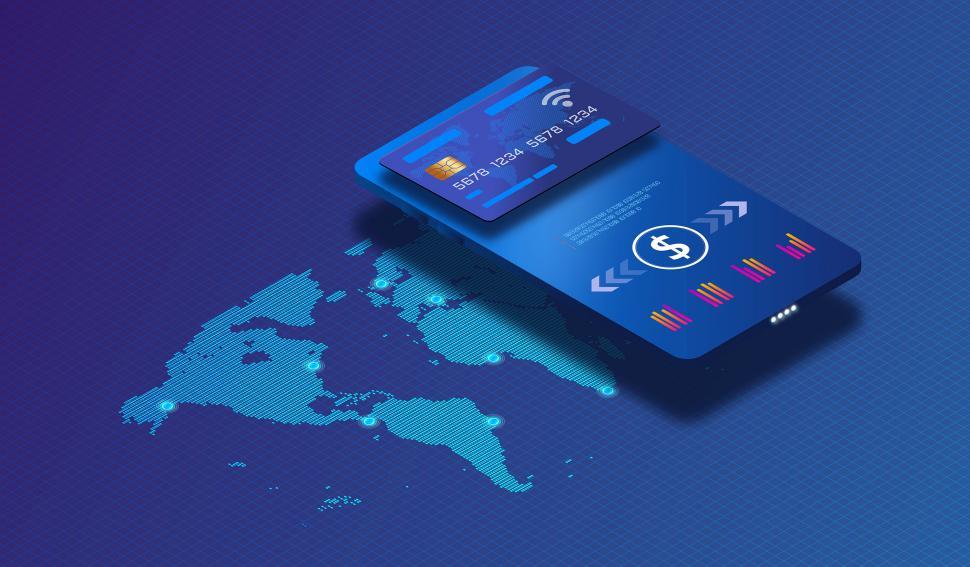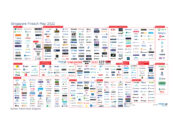
Accelerate Revenue for Your APAC Business Through Payments
by Praful Morar, Global Expansion Officer at Nuvei Digital Payments February 28, 2023Consumers in Asia Pacific (APAC) are by far the most enthusiastic adopters of digital payments worldwide, increasing their use of at least one digital payment method in the last 12 months by 69%. Card payments remain most popular in the region and APAC dominated the global card payments market last year with a 57.8% share of international card payments by value. For online businesses with a large customer base in APAC, working with an acquirer that holds local licenses in the region is critical to improving acceptance rates and increasing revenues. Looking at shopping and payment trends in Australia, Hong Kong and Singapore, it’s evident that establishing customer trust and loyalty via local acquiring in these regions will pave the way for further growth of digital payments and e-commerce across APAC.
Here is why APAC should be the focus.
Business is booming

E-commerce across APAC increased at a staggering rate since COVID-19 when digital payments became a necessity and the preferred way to pay ever since. In the e-commerce sector alone, revenue is projected to reach US$2,139 billion in 2023, with an expected annual growth rate of 11.7% until 2027. This is great — and probably unsurprising — news for merchants across the globe who will be looking to tap into this market if they haven’t already. Even if they have, local acquiring isn’t always a priority for merchants. In a digital payment hub like APAC, this could have a significant impact on a business’s revenue – as well as its relationship with customers.
So are digital payment methods

Source: Unsplash
Card payments across APAC are expected to grow at a CAGR of 12.9% until 2025, reaching US$39.7 trillion. Despite other alternative payment methods growing in popularity across the region, it’s clear that on and offline payments in APAC are still driven by credit and debit cards, with major card schemes including VISA, Mastercard, CUP and JCB. In Singapore, for example, 68% of e-commerce transactions take place via card, in Australia, it’s 50%, while in Hong Kong, cards have a usage rate of 93%. It’s important to note that digital wallet payments will amount to three-quarters of e-commerce payment methods and over half of POS payments in the Asia Pacific region by 2025. In other words, card payments across APAC aren’t going anywhere anytime soon, making it more important than ever for merchants to use a payment platform that can provide local acquiring in these regions.
Cross-border trends

Source: Freerange Stock
APAC is an excellent place to start for merchants considering expanding their business internationally. Cross-border shopping continues to grow in popularity across the region and shows no signs of slowing down. In Singapore, for example, consumers are more likely to shop with international merchants than domestic ones, with 78% of online consumers making at least one cross-border purchase. Cross-border e-commerce makes up 55% of all sales in Singapore, suggesting that international merchants have excellent potential for growth in this market. Australia is not far behind, with 61% of consumers having shopped cross-border, totaling a US$4.2 billion market. Due to Hong Kong’s relatively small size, the island’s cross-border e-commerce market takes up an astonishing quarter of all e-commerce transactions. Whether merchants have an existing customer base in APAC or are looking to expand into this rapidly growing center for e-commerce and digital payments, the benefits of working with a platform that offers local acquiring could be a gamechanger for online businesses.
Increase sales, boost revenue, gain trust.

Source: Freerange Stock
The not-so-secret formula for any business that wants to succeed. The significance of choosing a payment provider that has local acquiring in key regions should not be underestimated by merchants operating cross-border, who will gain a considerable competitive advantage in the following ways:
1. Increasing the number of approved transactions. Routing transactions through a local bank will lead to higher authorisation rates for merchants. This is largely due to the higher rates of fraud that occur when making international transactions, resulting in banks declining payments. Inevitably, declined payments will more-often-than-not result in consumers shopping elsewhere, resulting in financial loss for merchants.
2. Avoiding cross-border fees. When the consumer’s issuing bank and the merchant’s acquirer are in different locations, this often increases transaction fees. For example, businesses could be charged an additional 1.4% per transaction, depending on variables such as currency and card issuer. In addition, consumers could be charged a foreign transaction fee (between 1%-3% of the purchase value) when they use their card abroad or pay for something online from a foreign merchant. Working with a local acquirer can minimize additional costs for both the merchant and the consumer.
3. Improving the customer experience. Working with a local acquirer would mean fewer hidden fees for the consumer and, therefore, a more predictable, seamless checkout experience. In addition, since local acquiring can ensure higher acceptance rates, this could also drive customer loyalty and trust, encouraging consumers to make more purchases in the future.
In conclusion, choosing the correct global payments provider for your growing business can boost sales and accelerate revenue rapidly. In APAC, where digital payments are increasing in quantity and type, consumers are looking for seamless checkout experiences – no hidden costs, no soft declines and no surprises when they shop. For businesses looking to expand in the region, local acquiring in the big three, Australia, Hong Kong and Singapore, could unlock growth across APAC, which remains a largely untapped market for many international e-commerce businesses.






